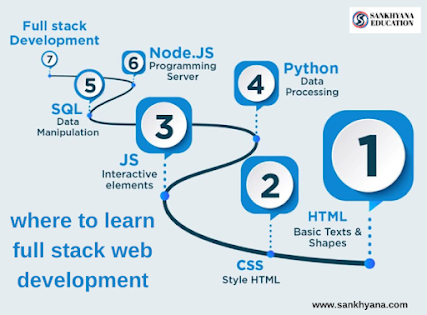10 Mistakes to Avoid When Starting Your Data Science Career
Embarking on a data science career is an exciting journey that offers numerous opportunities for personal and professional growth. As the field continues to evolve and gain importance across industries, it's essential to start off on the right foot to ensure a successful and fulfilling career. Avoiding common pitfalls can save you time, frustration, and help you make the most of your data science endeavors. In this blog, we'll discuss ten mistakes to avoid when launching your data science career.
1. Neglecting the Basics
Data science is a multifaceted field that encompasses various disciplines like statistics, programming, and domain knowledge. Neglecting to build a strong foundation in these basics can hinder your progress. Before diving into advanced concepts, ensure you have a solid grasp of programming languages (Python/R), statistics, linear algebra, and probability theory.
2. Skipping Exploratory Data Analysis (EDA)
Rushing into modeling without conducting thorough Exploratory Data Analysis (EDA) is a common mistake. EDA helps you understand your dataset's characteristics, identify outliers, missing values, and potential patterns. Skipping this step can lead to biased models and inaccurate conclusions.
3. Ignoring Business Context
Data science is not just about crunching numbers; it's about solving real-world problems. Ignoring the business context and focusing solely on algorithms can result in solutions that lack practical value. Always strive to understand the problem from a business perspective before delving into technical details.
4. Overlooking Data Quality
Garbage in, garbage out (GIGO) is a fundamental principle in data science. Neglecting data quality issues, such as inconsistencies, errors, and inaccuracies, can severely impact your models' performance. Prioritize data cleaning and preprocessing to ensure your analyses are based on reliable information.
5. Lack of Effective Communication
Data scientists are often required to communicate their findings and insights to both technical and non-technical stakeholders. Neglecting communication skills can hinder your ability to convey complex ideas, gain buy-in for your solutions, and collaborate effectively with colleagues from diverse backgrounds.
6. Relying Solely on Tutorials
While tutorials are helpful for learning new techniques, relying solely on them can limit your understanding. Avoid the mistake of treating tutorials as a one-size-fits-all solution. Instead, experiment with real-world datasets, modify algorithms, and explore various approaches to gain a deeper understanding of the concepts.
7. Disregarding Model Interpretability
Building complex models without considering their interpretability can lead to a lack of trust in your results. Interpretable models allow you to explain your findings and insights to stakeholders, which is crucial for decision-making. Strike a balance between model complexity and interpretability based on the problem at hand.
8. Neglecting Continuous Learning
Data science is a rapidly evolving field with new tools, techniques, and algorithms emerging regularly. Failing to engage in continuous learning can result in outdated skills and approaches. Stay up-to-date by attending workshops, conferences, reading research papers, and participating in online courses.
9. Underestimating the Importance of Domain Knowledge
Strong domain knowledge can significantly enhance your data science work. Understanding the nuances and intricacies of the industry you're working in helps you ask the right questions, design relevant experiments, and generate actionable insights that align with business goals.
10. Impatience with Failure
Failure is an inevitable part of the data science process. Not all models will perform well, and not all hypotheses will lead to significant insights. Embrace failure as a learning opportunity and use it to refine your approach, iterate on your strategies, and ultimately improve your skills.
Conclusion
Starting a data science career can be a rewarding experience, but it requires a thoughtful and strategic approach. By avoiding these ten common mistakes, you can set yourself up for success in the field. Remember to build a strong foundation, prioritize data quality, communicate effectively, and continuously learn and adapt. With the right mindset and a dedication to honing your skills, you'll be well on your way to making meaningful contributions as a data scientist.
.png)

.png)
.png)
Comments
Post a Comment